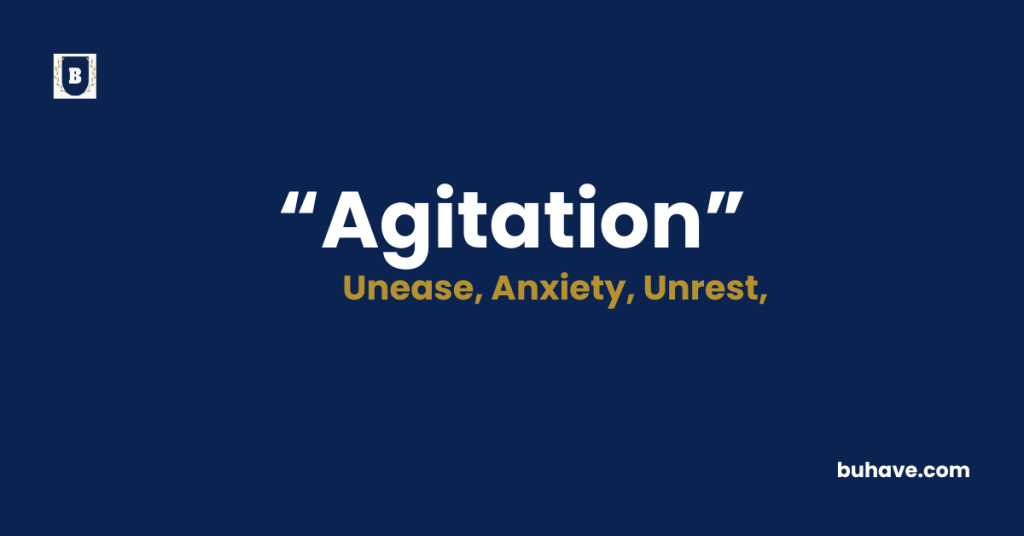The word ‘Agitation’ (Noun) refers to a state of nervousness, unrest, or emotional disturbance, as well as physical shaking or stirring. In this guide, you’ll learn the complete meaning, origin, examples, synonyms, antonyms, and common uses of ‘Agitation’ to help you use it effectively in everyday conversation or writing.
Agitation Explained in Depth
A complete and detailed guide to the word ‘Agitation’ including meaning, definition, examples, etymology, synonyms, and antonyms.
Meanings of Agitation
Agitation describes a state of anxiety, nervous excitement, or emotional unrest. It can also refer to the act of stirring a liquid or physically shaking something. In a broader context, it includes promoting or stirring up public concern or protest about a particular cause.
Definition
Agitation is the condition of being emotionally or mentally disturbed, or the act of moving something briskly to create motion. It also refers to actions intended to arouse public interest or political change.
Etymology
The word “agitation” comes from the Latin agitare, meaning “to shake, drive, or stir up,” which is a frequentative form of agere, meaning “to act or do.” The term entered English in the late Middle Ages and has retained both physical and emotional meanings.
Example Sentences
- He paced back and forth in agitation before the interview.
- The political leader’s speech caused widespread agitation among the crowd.
- Stir the mixture until it reaches a state of smooth agitation.
- Her hands trembled slightly from the emotional agitation she felt.
Agitation Synonyms
- Unrest
- Anxiety
- Nervousness
- Disturbance
- Turbulence
- Excitement
- Stirring
- Disquiet
- Irritation
- Disruption
Agitation Antonyms
- Calm
- Peace
- Tranquility
- Composure
- Stillness
- Relaxation
- Contentment
- Order
- Ease
- Serenity
FAQs about Agitation
Here are some frequently asked questions (FAQs) about the word “Agitation”
1. What does “agitation” mean emotionally?
It refers to feelings of anxiety, stress, or emotional turmoil, often caused by worry, conflict, or fear.
2. Can “agitation” be physical?
Yes. It can describe the act of shaking, stirring, or vigorously moving a substance or object.
3. How is “agitation” used in politics?
In a political sense, it refers to actions or campaigns aimed at arousing public concern, protest, or demand for change.
4. Is agitation always negative?
Generally, it implies discomfort or unrest, but in certain contexts like activism or chemistry, agitation can be constructive or neutral.
5. Can someone hide their agitation?
Yes. While some signs may show through body language or facial expression, people often try to mask their inner unrest.

















